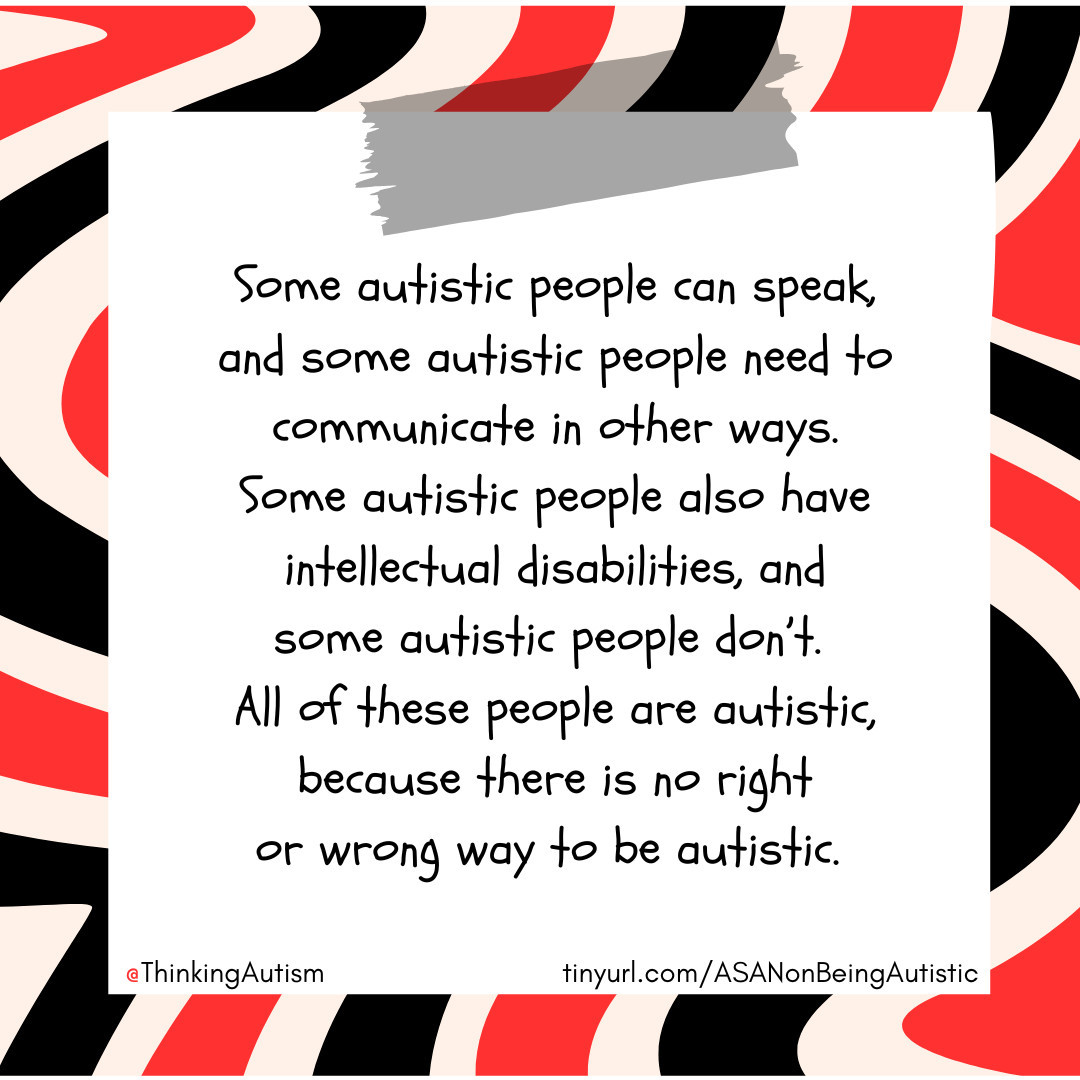The next day, I had a call with the producer. I broke down why the play was so harmful and why putting it on was a bad idea. She defended the choice, saying the harm could be mitigated with a talkback after the show.
I asked who would be on the talkback panel. She said:
• The playwright, who has an autistic daughter and based the play on his experiences.
• A social worker who works with families of autistic kids.
• A parent from the community who suggested the play, who has an autistic son.
I said, “Do you know who’s not on that list?”
She admitted they didn’t have an autistic person on the panel. She asked if I could recommend an organization to reach out to for someone to join the talkback. I said, “It has to be an autistic person.” And also, the panel shouldn’t outnumber autistic voices with people who likely believe they have the right to speak over us.
She asked how to handle the play sensitively. I said, “You can’t.” The way it portrays autistic people is so harmful that simply putting it on is damaging. It reinforces anti-autistic beliefs and plants harmful ideas in the heads of those unfamiliar with autism.
I asked if she truly believed putting this play on was the right thing to do. She said yes. I was flabbergasted—this is someone who has repeatedly gone out of her way to listen and learn from me as an autistic person.
She said she’d speak with the board and the director to figure out what they could do, then asked if I’d meet with their team the following week. I agreed.
#ActuallyAutistic #theater #autistic #autism





